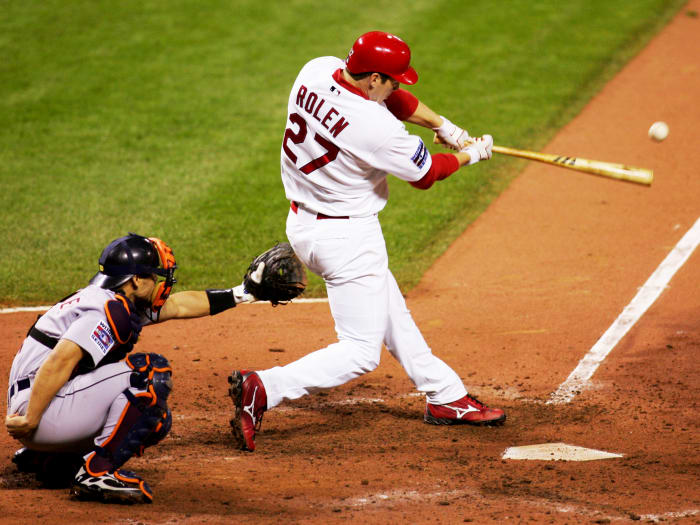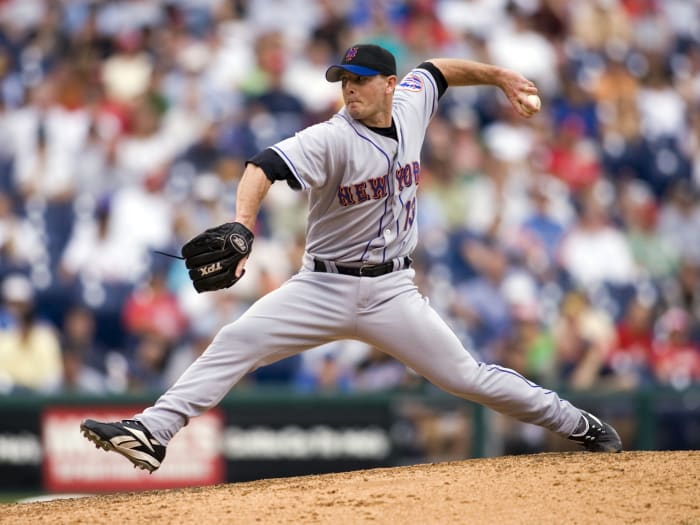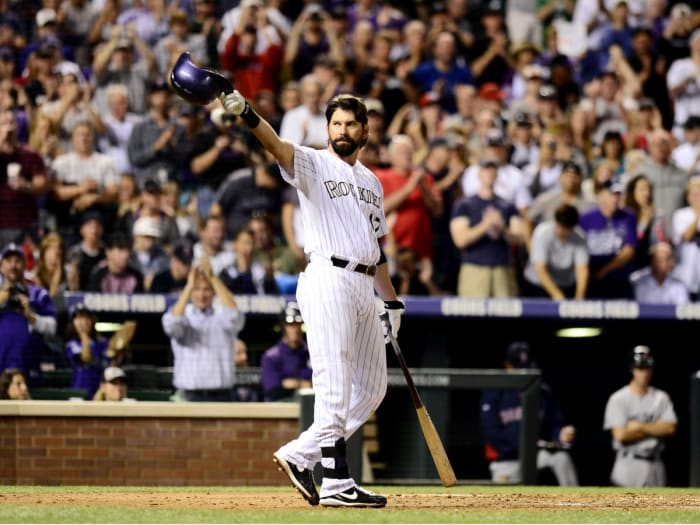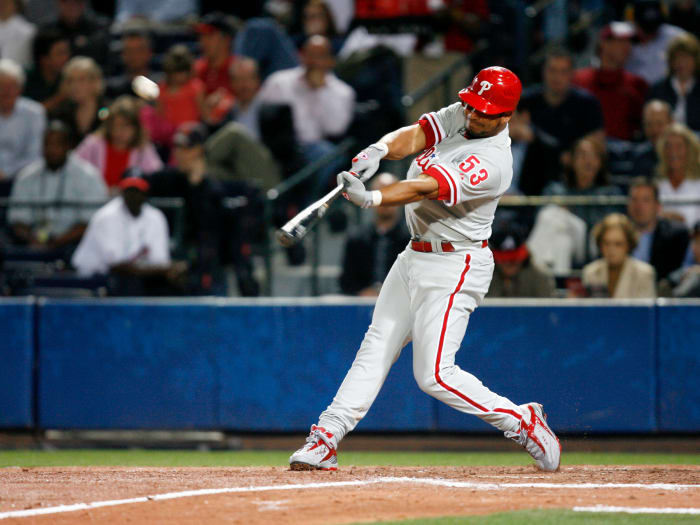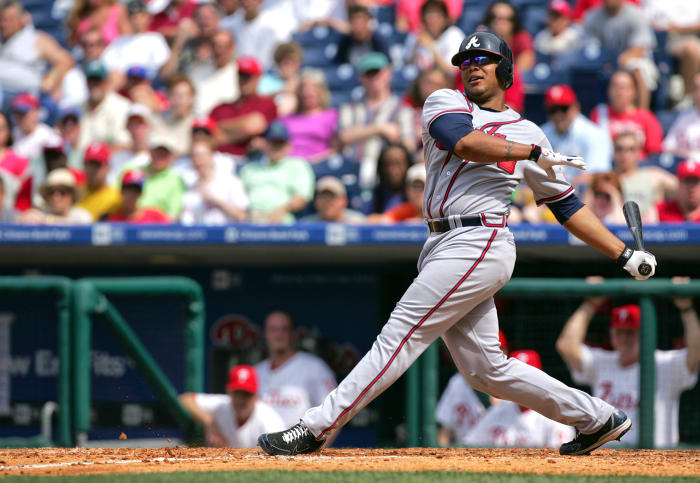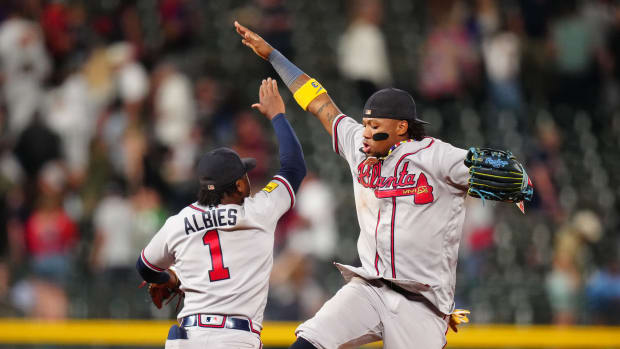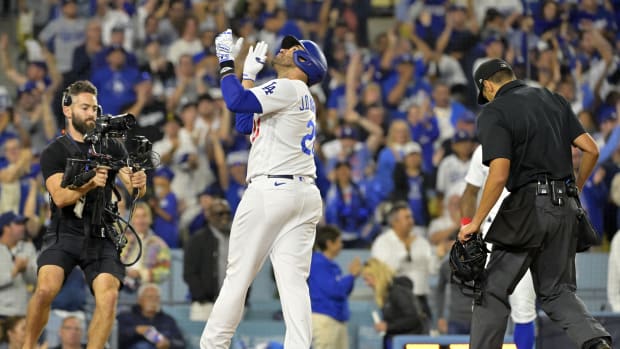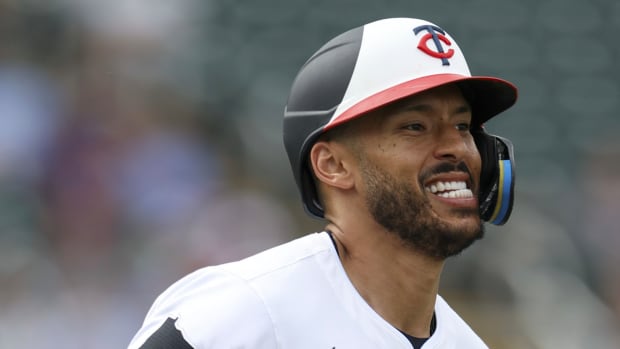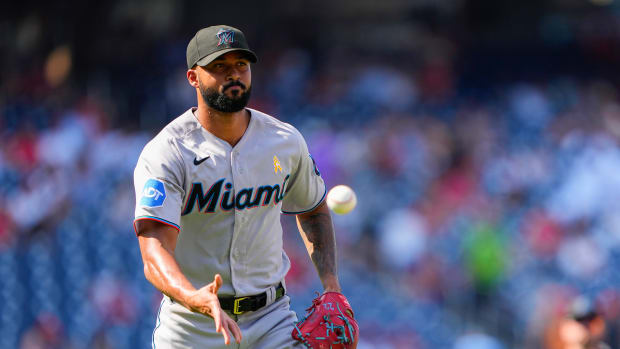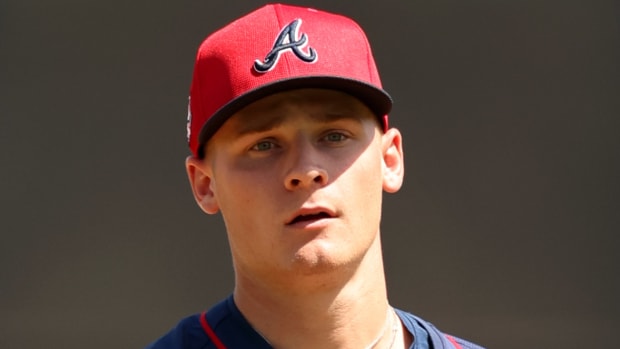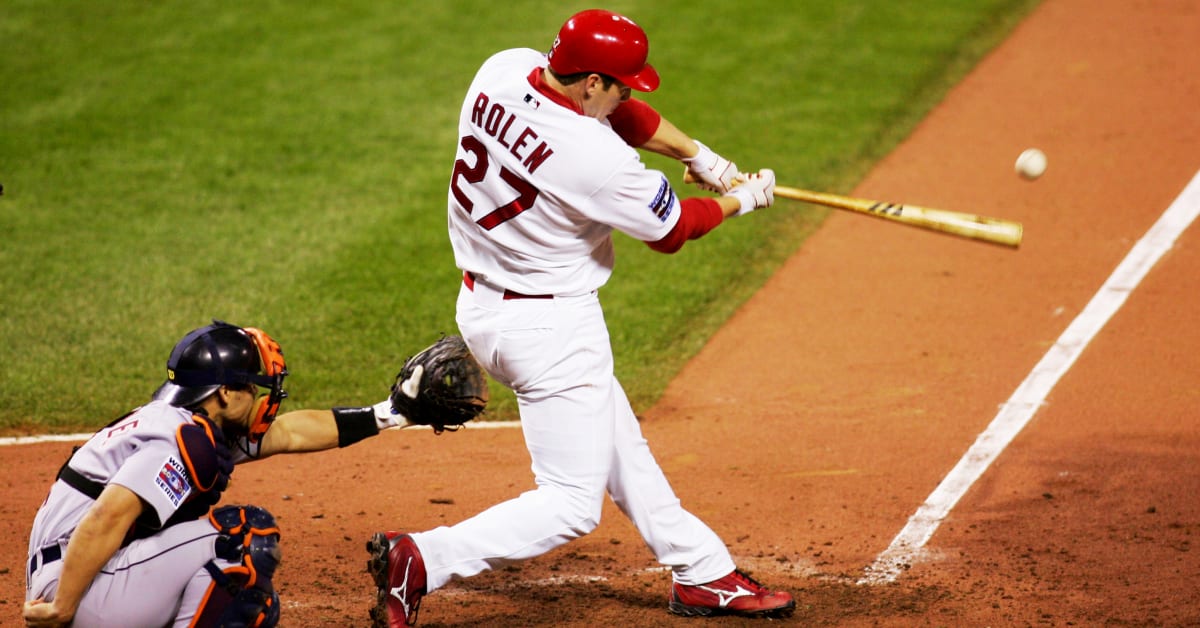
MLB Roundtable: Who Should Make the Hall of Fame?
Hall of Fame season is coming to an exciting conclusion, with players like Barry Bonds and Roger Clemens in their final year of eligibility on the writers’s ballot and David Ortiz in his first. All three right now appear on at least 75% of the ballots counted by Ryan Thibodaux’s Baseball Hall of Fame Tracker. Will they have enough support when the results are announced Tuesday night at 6 p.m. on MLB Network? It’s going to be close.
We asked our baseball writers to make the case for why one player on the BBWAA ballot is worthy of the Hall of Fame. Here’s what they had to say:
Tom Verducci
The greatest mystery of current Hall of Fame voting is why Jeff Kent does not draw more support. In his eighth ballot last year he drew a personal record of just 32%. Kent is not getting voted in by the writers, but in 2024 he should be a first-ballot inductee by the Today’s Game Era Committee. Why the difference? The committee won’t overthink it.
Kent has more home runs, more 100-RBI seasons and more games batting cleanup than any second baseman in history. Full stop.
Take out steroid users and take out pitchers; every other all-time leader in home runs at any position has been elected by the writers. The cast includes catcher Mike Piazza, shortstop Cal Ripken, third baseman Mike Schmidt, center fielder Willie Mays and right fielder Hank Aaron. (First baseman Albert Pujols will be a first-ballot electee when eligible.)
Kent was a true outlier. He provided the slugging of a first baseman at second base, which was a huge advantage for his teams. Among all second basemen he not only is first in homers, but also second in slugging, third in RBIs, fifth in doubles and seventh in OPS+.
Managers could bat Kent cleanup night after night and know he was going to produce runs. Many writers have come to dismiss RBIs, rather than valuing it in context, so they miss much of Kent’s value. Over a 17-year career—nobody’s idea of a small sample—Kent was even better with runners in scoring position (.300/.385/.513) than he was overall (.290/.356/.500).
Wait a minute. Let that sink in. Kent hit .300 and slugged .500 with runners in scoring position for his career while playing the middle infield. Do you know how many other players did that in the Expansion Era (since 1961, minimum 2,000 plate appearances)?
Zero.
That’s an outlier. Was Kent a great defender? Did he play defense well enough to inflate his WAR? (A stat, by the way, that rates Lou Whitaker, a guy who “slugged” .334 against lefties, above Reggie Jackson, Derek Jeter and Yogi Berra.) Did he win a Gold Glove?
No. But here’s all you need to know about Kent’s defense: managers kept running him out there at second base. Their job is to win games, and Kent played on many good teams. Managers understood he played the position well enough to benefit from his outlier offense at second base. Only 10 men ever started more games at second base than Kent. His defense was good enough.
Emma Baccellieri
Now in his fifth year on the ballot, Scott Rolen has made it halfway through his eligibility period. But I think his candidacy deserves a second look now—and I don't think it should take him all 10 years to make it to Cooperstown. Most of his case focuses on his defense: As Jay Jaffe wrote here at SI when Rolen was added to the ballot in 2017, he “played with an all-out intensity, sacrificing his body in the name of stopping balls from getting through the left side of the infield.” But there are a few specific points that work in his favor here. One is that he's an instance where the eye-test approval of the past matches the metrics' approval in the present. He's one of the 10 best third basemen ever by defensive WAR. And there's the fact that his offensive power was considerable, too: There have been just 10 third basemen in history (5,000 min. PA) to post a career OPS+ higher than Rolen's. Six are Hall of Famers. (Of the remaining four, two are still active, Josh Donaldson and Manny Machado; the other two are David Wright and Bill Madlock.)
Will Rolen make the Hall this year? It seems unlikely. But at the rate he's gained votes over the last several winters, I think he just might be there in 2023.
Will Laws
Billy Wagner may not have ever held the career saves record, like Mariano Rivera does and Trevor Hoffman once did. He may not have a bunch of iconic postseason moments after playing for the sport's supreme dynasty of his generation, like Rivera. But he has a case as the most dominant reliever—nay, pitcher—of all time. As the skill of missing bats has become more appreciated over the last decade, no one's legacy has benefited as much as Wagner‘s. Among pitchers with 800 career innings, Wagner ranks first in strikeout rate (33.2%) and opponents batting average (.187). The differential between his record K% and the runner-up, Chris Sale (30.6%), is larger than the differential between Sale and 11th-placed Octavio Dotel (28.4%). He also ranks second in ERA+ (187), behind only Rivera, and far ahead of third-placed Jacob deGrom (157). The fireballing closer who ranks sixth in career saves deserves to be the ninth relief pitcher enshrined in Cooperstown.
Matt Martell
The best thing that happened to Todd Helton’s Hall of Fame case is Larry Walker’s election in 2020. Finally, we weren’t excluding one of the game’s all-time greats just because he played for the Rockies.
Helton spent his entire 17-year career with Colorado, and thus played half his games with the altitude advantage, but the second best thing to happen to Helton’s case is the research done in recent years that shows just how much of a disadvantage Rockies hitters have when playing away from Coors Field. It’s reasonable to suggest that Helton’s true talent is something between his absurd home performance and his underwhelming, though still solid, road stats—something like his overall numbers.
| G | PA | Avg. | OBP | SLG | OPS | HR | |
|---|---|---|---|---|---|---|---|
Home | 1,141 | 4,841 | .345 | .441 | .607 | 1.048 | 227 |
Road | 1,106 | 4,612 | .287 | .386 | .469 | .855 | 142 |
Career | 2,247 | 9,453 | .316 | .414 | .539 | .953 | 369 |
For me, someone is an automatic Hall of Famer if he finishes his career as a 3/4/5 player, meaning he has a career slashline at or above .300/.400/.500—except those who have ties to PEDs. Only 22 players in MLB history are career 3/4/5 hitters (minimum 5,000 plate appearances). All but five of them are in the Hall of Fame. Two of them, Joey Votto and Mike Trout, are still active; one of them is Shoeless Joe Jackson (Black Sox); one is Manny Ramírez (PEDs); one is Todd Helton.
Helton was also a Hall of Fame defender at first base. His 76.4 runs from fielding ranks eighth among first basemen, and he’s by far the best hitter among the top 15.
His support has climbed from 16.5% in his first year of eligibility to 56.9% on the ballots tracked so far. He won’t get in this year, but within the next few years he should reach the 75% voting threshold necessary for induction.
Sign up to get the Five-Tool Newsletter in your inbox every week during the MLB offseason.
Nick Selbe
As of Friday, Bobby Abreu is barely cracking the 10% threshold among public ballots, which is a pretty glaring disservice to one of the most consistent and versatile hitters of his generation. He ranks 20th among right fielders all-time in JAWS, sandwiched between a pair of current Hall of Famers in Dave Winfield and Vladimir Guerrero. Abreu is one of six players in baseball history to finish their careers with at least 250 home runs and 400 stolen bases. Three of that group—Rickey Henderson, Joe Morgan and Craig Biggio—are in the Hall. The other two? Bobby and Barry Bonds.
For 13 straight years (1998–2010), Abreu played in at least 151 games with a combined OPS+ of 132. During that stretch, he posted an on-base percentage above .400 seven times and hit at least 20 home runs nine times. He never stole fewer than 19 bases, and his OPS+ never dipped below 113. He also never finished higher than 12th in the MVP voting despite that reliable production, so perhaps it's fitting that he's shown up on so few ballots. But for as good as Abreu was, and for how long he was was so good, it doesn’t square that Abreu is far closer to leaving the ballot than earning enshrinement.
Michael Shapiro
Perhaps this comes with just a twinge of nostalgia for 2000s-era TBS games, but Andruw Jones is the greatest defensive center fielder I’ve ever seen. Apologies to Jim Edmonds. Sorry to Kevin Kiermaier. Jones made playing center field look absolutely effortless, gliding his way to rob bloop singles and would-be dingers on a weekly basis. Atlanta’s historic run atop the NL East wouldn’t be possible without Jones’s defensive brilliance.
Jones’s Hall-of-Fame case rests on more than a brilliant highlight reel. He finished in the top five in baseball in defensive runs saved in six straight years from 1997 to 2002, and he ranks No. 22 all-time in dWAR. And Jones wasn’t some outfield version of Andrelton Simmons, either. Jones finished his career with 434 home runs, more than Cal Ripken Jr., Mike Piazza, Larry Walker and Edmonds. He posted a .513 slugging and .860 OPS from 1998 to 2006, a nine-year stretch in which he averaged 35 homers and 104 RBIs per season. In that span, only Alex Rodriguez and Barry Bonds tallied more than Jones’s 6.1 WAR.
A late-career swoon came rather suddenly for the Curaçao native, and his time in the big leagues ended with more of a fizzle than a grand exit. But Jones’s career was anything but a flash in the pan. He paired his defensive excellence with plenty of pop at the plate, fueling a consistent winner for more than a decade. A player of his caliber and impact deserves a place in Cooperstown.
More MLB Coverage:
• Most Pressing Needs for Every NL Playoff Team
• Most Pressing Needs for Every AL Playoff Team
• Hall of Fame Tracker Is Improving the Cooperstown Conversation
• Solidarity and Betrayal: Inside Baseball’s First Major Labor War




































